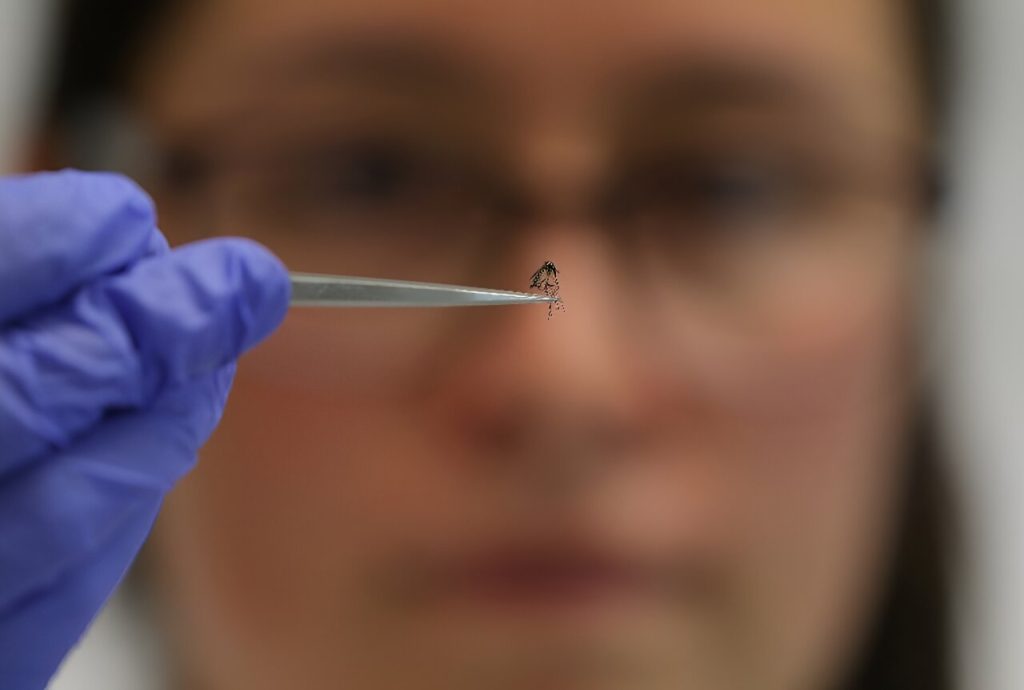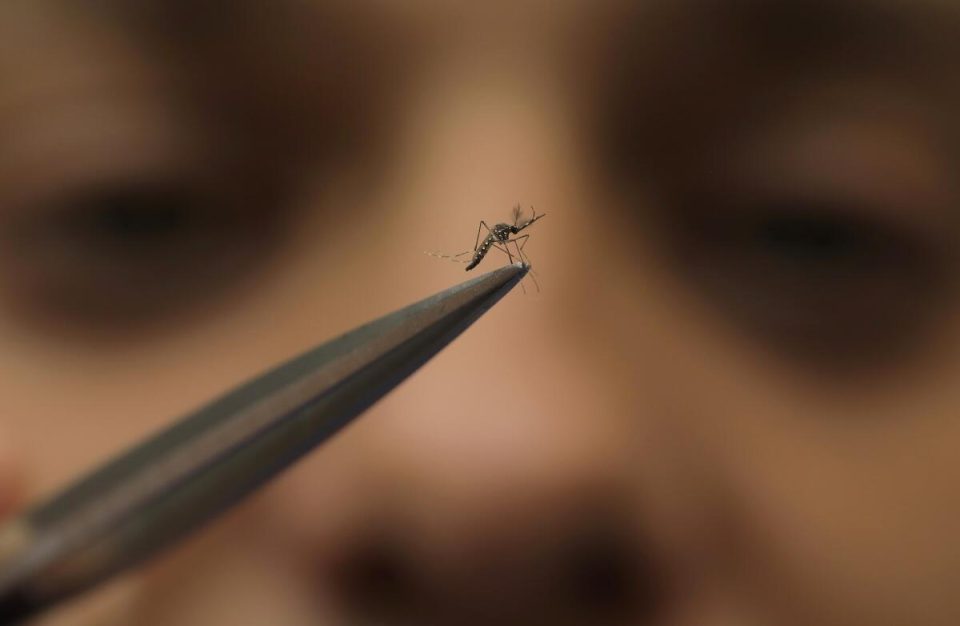FALCON POWERS – For about 10 years, a global mosquito program in Colombia has been working to replace the infamous Aedes aegypti mosquito, which transmits dengue fever, with a genetically modified version. Supported by billionaire Bill Gates, the project has achieved promising results, with a 95% decrease in fever cases in the areas involved compared to the previous decade.
Amid containers filled with stagnant larval water, swarms of mosquitoes buzz under a white cloth cage – in what resembles a mosquito “factory,” some escape their cage to bite visiting guests.
While they resemble the insects that transmit dengue, these mosquitoes are harmless and are part of an ambitious experiment in Colombia to combat this disease.

Dengue fever has indeed caused 4,500 deaths this year in Latin America.
Biologist Nelson Grisales, who heads this laboratory in Medellin, the country’s second-largest city, tells AFP, “We are using life to preserve life.”
Thanks to the project, the rate of dengue fever infection in the Antioquia region (northwest) has decreased by 95% compared to the results recorded in the previous decade, according to health authorities in this area with 4.4 million inhabitants.
This represents a victory in the battle against this disease, despite a disinformation campaign on social media claiming that Bill Gates is exploiting this mosquito for mysterious purposes.
And although it is also capable of biting, the laboratory-developed mosquito does not spread dengue fever, a disease endemic to tropical regions that causes fever, headache, vomiting, and muscle aches, and in the most severe cases can lead to deadly hemorrhaging.
Unlike wild mosquitoes, the laboratory mosquito contains the Wolbachia bacteria, which “create a barrier and prevent the transmission of dengue fever,” as explained by BeatrizGeraldo, another biologist in the Global Mosquito Program.
The credit for this discovery goes to the Australian scientist Scott O’Neill, one of the standard-bearers in fighting this disease since the early 1990s. In his research, the researcher found that these bacteria are present in half the species of mosquitoes, but not in the tiger mosquito (also known as the Egyptian mosquito). O’Neill sensed that by transferring the Wolbachia bacteria to this mosquito, the transmission of dengue fever could be halted.
“They extracted the Wolbachia from fruit flies and injected them into millions of Egyptian mosquito eggs until they were able to establish a population capable of reproducing using the Wolbachia for many generations,” says Grisales.


